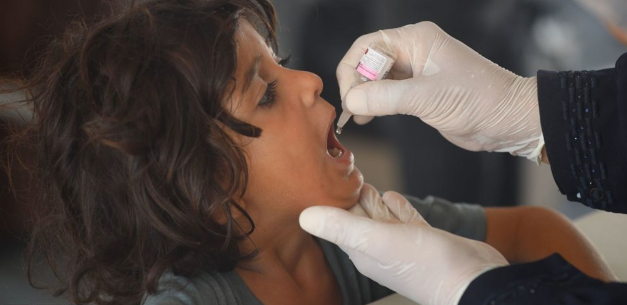WHO Surpasses Target for Gaza Polio Vaccinations as Campaign Intensifies

The World Health Organization (WHO) has successfully exceeded its target for polio vaccinations in Gaza, marking a significant achievement in the ongoing public health campaign. This effort comes amid challenging conditions in the region, where healthcare access has been severely impacted by the ongoing conflict and economic hardships.
The vaccination campaign, launched in response to concerns about the potential resurgence of polio, has been critical in protecting children in Gaza from this crippling disease. Polio, which primarily affects young children, can lead to irreversible paralysis and is easily preventable through vaccination. Given the densely populated nature of Gaza and the fragile healthcare infrastructure, ensuring widespread immunization has been a top priority for health authorities.
Despite the logistical difficulties and the volatile environment, WHO, in collaboration with local health officials and international partners, managed to vaccinate a large percentage of the targeted population. The campaign has focused on reaching children under the age of five, who are the most vulnerable to polio. Mobile clinics, community outreach programs, and health education initiatives have all played a role in this successful drive.
WHO’s ability to surpass its vaccination targets in Gaza is a testament to the resilience and dedication of healthcare workers on the ground. These efforts are crucial in preventing a polio outbreak in a region where the healthcare system is under constant strain due to the ongoing conflict.
The organization has announced that the vaccination campaign will continue in the coming weeks to ensure that every child in Gaza is protected against polio. This ongoing effort will also involve monitoring and surveillance to quickly identify and respond to any potential cases, ensuring that the virus does not gain a foothold in the population.
The success of this vaccination drive serves as a reminder of the importance of international cooperation in addressing public health challenges, particularly in conflict zones where local resources are often insufficient to meet the needs of the population.





